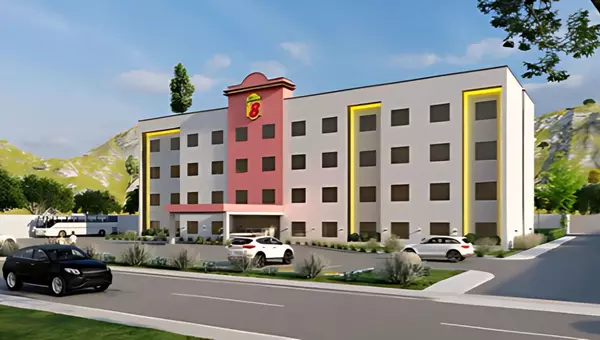Understanding the Legal Rights of Property Owners
Have you ever wondered about your rights as a property owner? Owning property is a big deal, and it comes with specific legal rights. Our article will guide you through these rights and how they impact you.
Keep reading to learn more!
Key Takeaways
- Property owners have the right to use, sell, and control their land or house. They decide who can enter and what gets built.
- Legal documents like titles and deeds are vital to prove ownership. This helps protect against false claims or disputes.
- Local laws, zoning regulations, and homeowners' associations limit what owners can do with their property. These rules ensure safety and community harmony.
- Owners must pay taxes and fees for public services, mortgage loans, title searches, and possibly homeowner association charges.
- Government actions such as eminent domain can force an owner to sell land for public use but require fair payment in return.
Understanding Property Rights
Understanding what you can do with your land or house is key. You get to decide who uses it, if you want to sell it, and even if you wish to build something new on it.
Right to Possession
The right to ownership means you can call a piece of land or a house yours. This is the first step in having property rights. If you own something, you decide who comes on your property and what gets done with it.
Think of it like keeping a toy safe; only you decide who can play with it.
Property owners must also make sure they have legal papers, like titles or deeds, to prove their ownership is official. These documents are needed if someone else tries to claim your space or if there's a disagreement about borders with neighbors.
Holding onto these papers keeps your claim strong and stops others from taking over what's yours without permission.
Right to Use
After gaining the right to possess land, owners also get the privilege to use their property. This means they can live on it, plant gardens, or build as they like. But there are rules they must follow.
Local laws and homeowners' associations set limits on what one can do. For instance, you might not be able to paint your house a bright color if it goes against association rules.
Property ownership gives the power to use land in personal ways, within legal limits.
Zoning laws and state regulations play big roles too. These ensure that how someone uses their land fits with nearby places and keeps people safe. If you own a shop, you need to make sure it's in a place zoned for business.
Sometimes disputes happen with neighbors over how property should be used which may require mediation or legal action.
Right to Transfer
Owners of property can pass it on to someone else. This right is key to owning things like houses or land. People do this by signing over their ownership documents, like a deed, to the new owner.
This process must follow certain rules set by property laws.
Sometimes, neighbors argue about who can transfer property to whom. Also, if someone owes money, the people they owe might have a say in the transfer. Plus, if the government needs your land for public use—through eminent domain—they must pay you fairly for it.
This ensures that even when property changes hands under such conditions, owners are treated justly according to the Fifth Amendment and property law principles.
Right to Exclude
After learning how property owners can transfer their real estate, it's essential to know they also have the power to keep others off their land. This is called the right of exclusion.
Owners can decide who gets in and who stays out. This means they can put up fences or signs that say "Private Property" to keep trespassers away.
But there are some limits. Sometimes a property might have an easement on it, allowing neighbors or utility companies access for specific reasons without asking permission first. Also, if there's a mortgage lien or homeowners association (HOA) rules involved, these might affect how much an owner can exclude others.
For example, an HOA might require owners to allow certain visitors into the community area.
Right to Destroy
Owners of property can decide to tear down or get rid of their belongings. This includes knocking down buildings or erasing structures from their land. They do this as part of their control over the things they own.
This control is one key right among others like using, selling, and keeping people off their property.
This action must follow the law and respect other rules about how land and belongings are used. For example, if tearing down a structure might harm the environment, owners may need special permission.
The idea is that while they can make big changes to their properties, it should not hurt others or break local regulations.
Legal Principles in Property Law
In property law, the rules about owning land and houses are very clear. They tell you what you can do with your property and how to keep it safe from others.
Titles and Deeds
Deeds play a key role in showing who owns property. They are legal papers that transfer ownership from the seller to the buyer. This means if you buy a house, the deed proves it's yours.
Deeds also make clear where your land starts and ends.
A deed confirms your place as the true owner of your home.
Ownership is set with both title and deed. The title is like a list of all past owners. It tells you who has had legal rights to the property over time. The deed is what actually moves those rights from one person to another when you buy or sell property.
Easements and Restrictive Covenants
Easements allow someone else to use a landowner's property for a specific reason. This means the owner can't do certain things that would stop this use. For example, if a neighbor has an easement to cross your land, you can't build a fence that blocks their path.
Restrictive covenants limit how people can use their property by setting rules everyone in the area must follow. These rules might say what color you can paint your house or that you cannot build very tall fences.
Both easements and restrictive agreements are key parts of owning real estate. They help maintain order and make sure properties get used in ways that benefit everyone involved. After understanding these principles, learning about leasehold and rental contracts is the next step for any future landowner or renter.
Leasehold and Rental Agreements
Leasehold and rental contracts are key documents that outline the rules between landlords and renters. These agreements include how much rent must be paid, when it is due, and the length of the lease.
They also talk about security deposits and rules on pets. Each state has its own laws for these agreements. This means what a landlord can ask from a tenant might change based on where the property is.
The American Apartment Owners Association gives a clear definition of rental lease contracts. It says they are formal deals between the property owner and the person renting. These documents cover everything needed to ensure both parties know their rights and duties.
For example, they detail how tenants should keep their rented spaces clean and handle damages beyond normal wear-and-tear after moving out limits on property rights follow next in our discussion.
Limits and Restrictions on Property Rights
Owning property comes with big freedoms. Yet, specific rules can limit these freedoms. Local laws and government have the power to set zoning rules. These decide what you can build or do on your land.
For instance, a city might say no to building a huge store in a quiet neighborhood. This keeps areas safe and peaceful for everyone.
Sometimes, governments need private lands for public use like parks or roads. They use eminent domain but must pay the owners fairly, called just compensation. Also, if someone needs to walk across your land to reach theirs, an easement may allow it without your yes.
Next up is understanding taxes and fees in real estate—another important part of owning property.
Understanding Taxes and Fees in Real Estate
Buying a home means paying more than just the price tag. There are taxes and fees to consider. Your local government decides how much you pay in property taxes, which help fund public services.
This money goes to things like schools, roads, and parks. You might also have to pay for a mortgage loan when buying a house.
On top of that, there are other costs when getting ownership of land. Fees can include paying for someone to check the land's legal ownership (title search) or insurance in case something is wrong with your property rights (title insurance).
If you refinance your house, expect fees for processing the new loan too. Plus, sometimes there are charges from homeowner associations (HOAs) if your new place is part of one. Every homeowner should know these extra expenses before buying a house.
Conclusion
Owning property gives you big rights like holding, using, and selling it. You also get to decide who steps on your land and if you want to build or break something down. Papers like titles show your ownership while deeds pass it from one person to another.
Yet, rules can limit what you do with your space due to laws about building sizes or how close you can be to the street. Taxes are part of owning too; they help pay for local services but vary based on where you live.
Knowing these facts helps make owning less confusing and lets you use your rights fully.
For more in-depth information on financial obligations related to property ownership, be sure to check out Understanding Taxes and Fees in Real Estate.
FAQs
1. What are the basic rights of property owners?
Property owners have a bundle of rights, including the right of possession, control, enjoyment, and disposition. These rights let owners use their property as they see fit—whether it's real property or personal assets.
2. Can someone take my property without paying for it?
Under the Constitution—thanks to due process and the Takings Clause—no one can take your private property without offering just compensation. This includes government actions under eminent domain or regulatory takings.
3. What is eminent domain?
Eminent domain is a power that allows governments to take private land for public use—but they must pay you fairly for it! It’s all about balancing private property rights with community needs.
4. How do lease agreements work between landlords and tenants?
Lease agreements outline terms between lessors (landlords) and lessees (tenants), detailing how long tenants can stay on the property and what rules they need to follow. Both sides have specific legal protections to ensure fairness.
5. Are there different types of co-ownership for properties?
Yes! Properties can be owned jointly in several ways: tenancy in common lets people own parts separately while joint tenancy involves shared ownership equally—and both come with unique rights and responsibilities.
6. How does intellectual property fit into this picture?
Intellectual Property Rights protect creations like inventions, trademarks, trade secrets... even if they're not tangible like land or buildings! Owners have exclusive rights here too—to control use, enjoy benefits from their ideas, or decide how these assets are shared or sold.
Categories
- All Blogs (61)
- agent (1)
- branded residence (1)
- business (2)
- buy (2)
- buying (23)
- cabarete (1)
- cap cana (6)
- caribbean (2)
- casa de campo (6)
- celebrity (2)
- commercial (1)
- construction (2)
- dominican republic (9)
- evaluation (1)
- event (1)
- financing (1)
- golf (2)
- golf resorts (2)
- Grupo De Vale (1)
- hotel (1)
- insurance (1)
- investing (26)
- las terrenas (1)
- law (3)
- lawyer (1)
- legal (1)
- luxury (1)
- market (1)
- north coast (2)
- properties (7)
- property inspection (1)
- property tax (1)
- puerto plata (1)
- punta cana (3)
- real esate (1)
- real estate (33)
- renting (5)
- resorts (1)
- selling (5)
- selling, (1)
- tax (3)
- usa (1)
- vacation rental (2)
Recent Posts










GET MORE INFORMATION NOW

